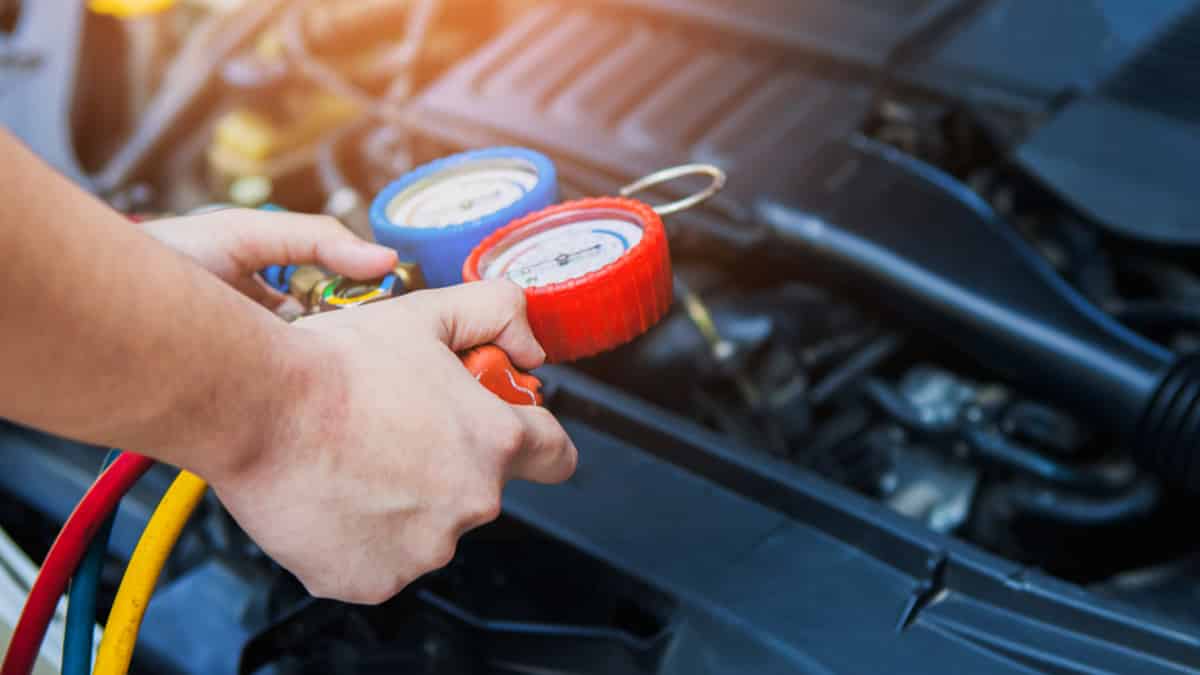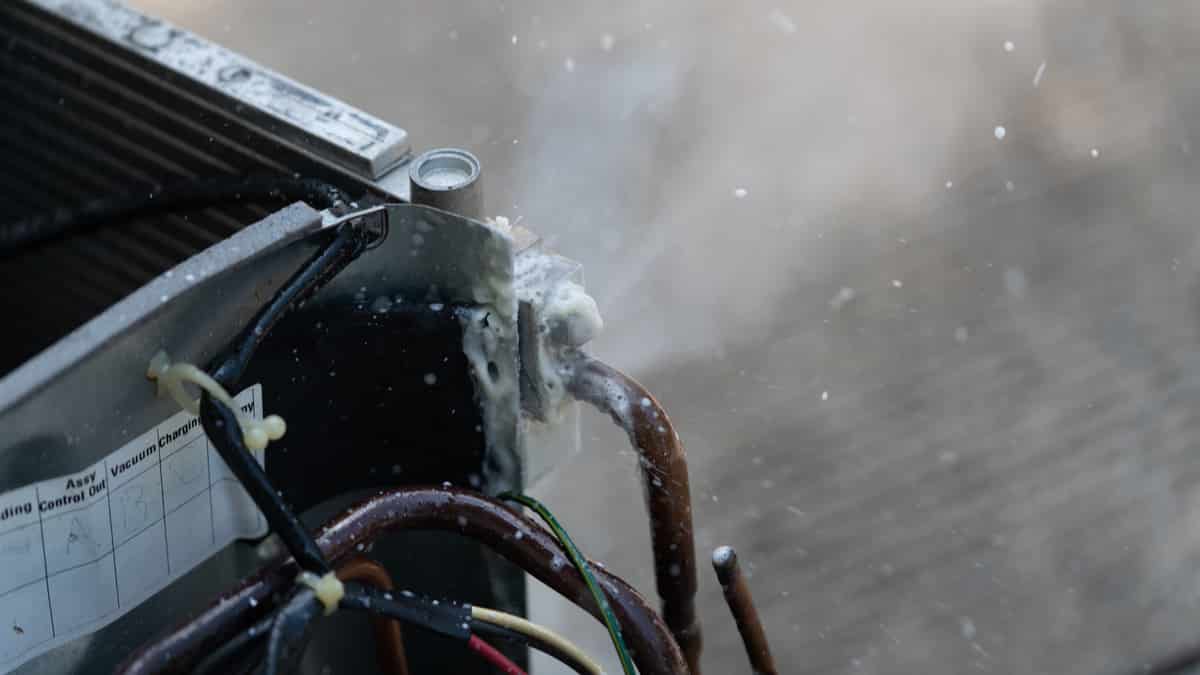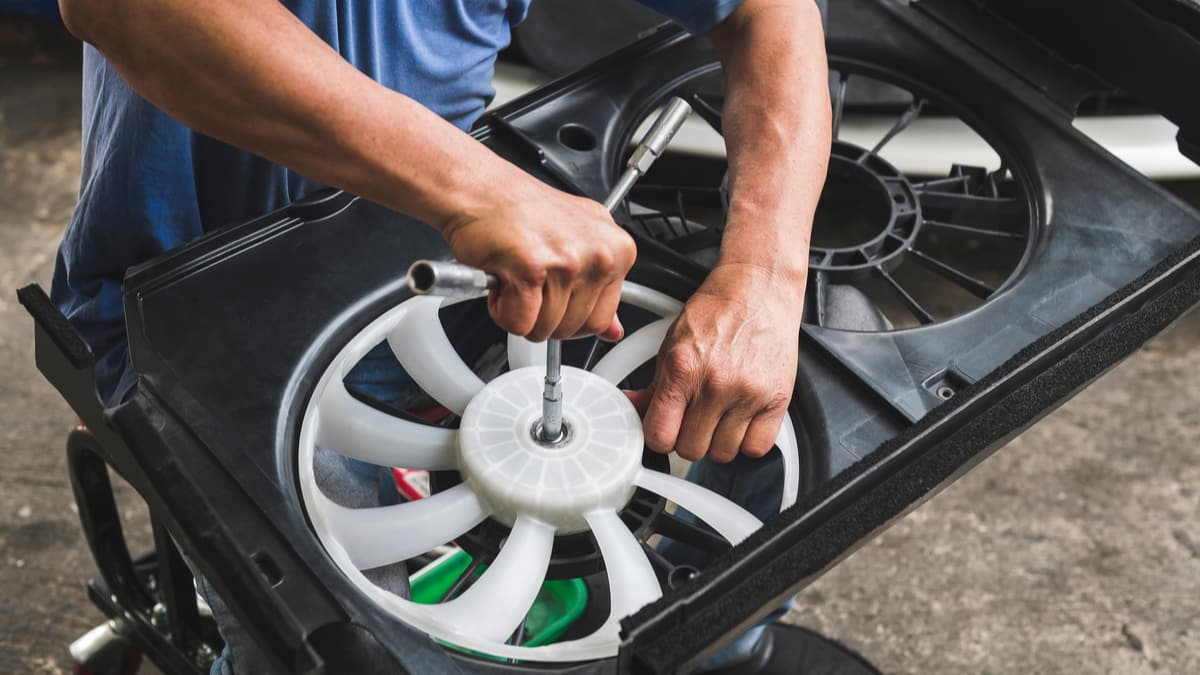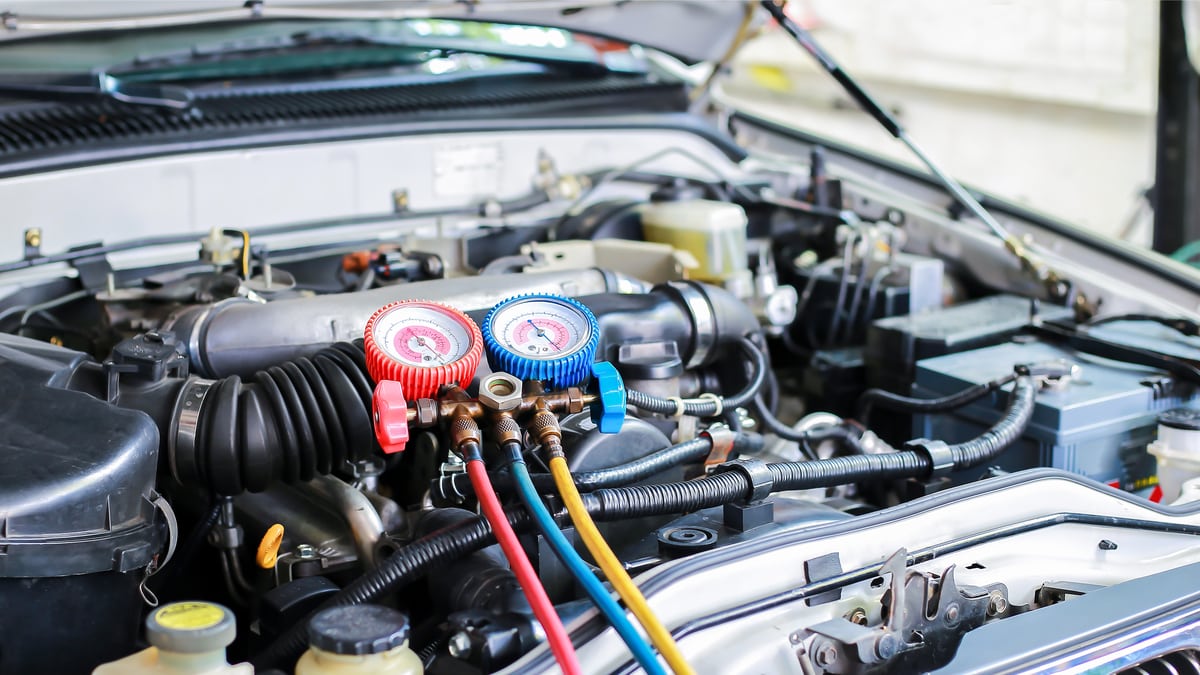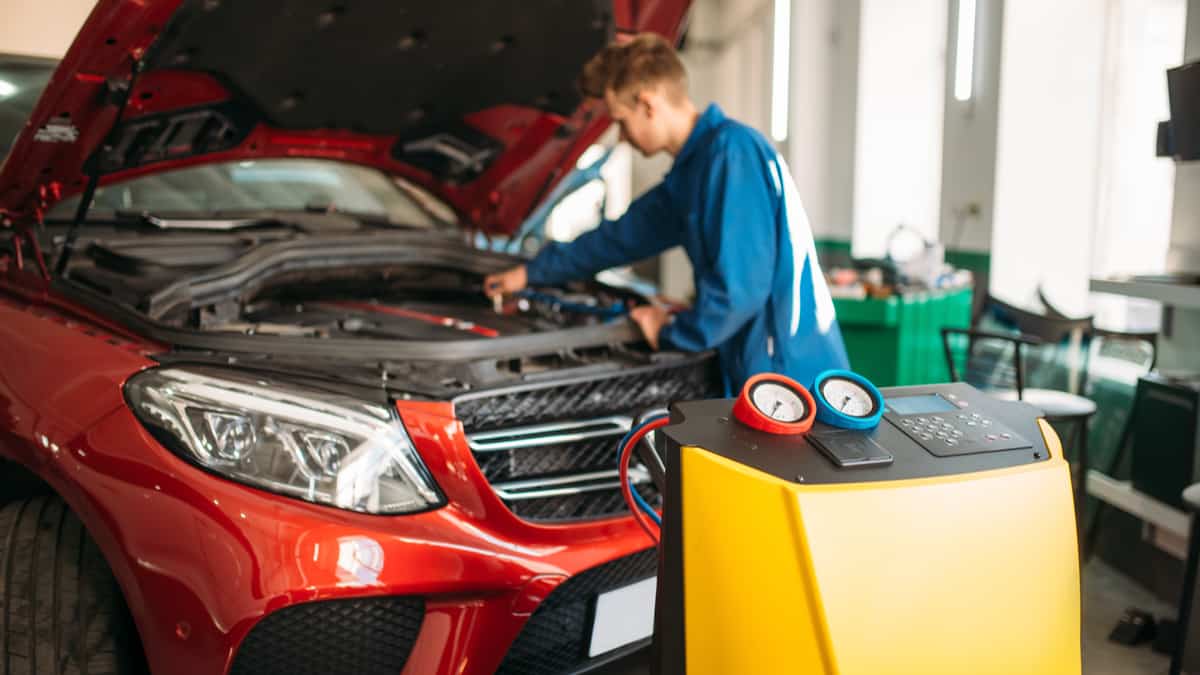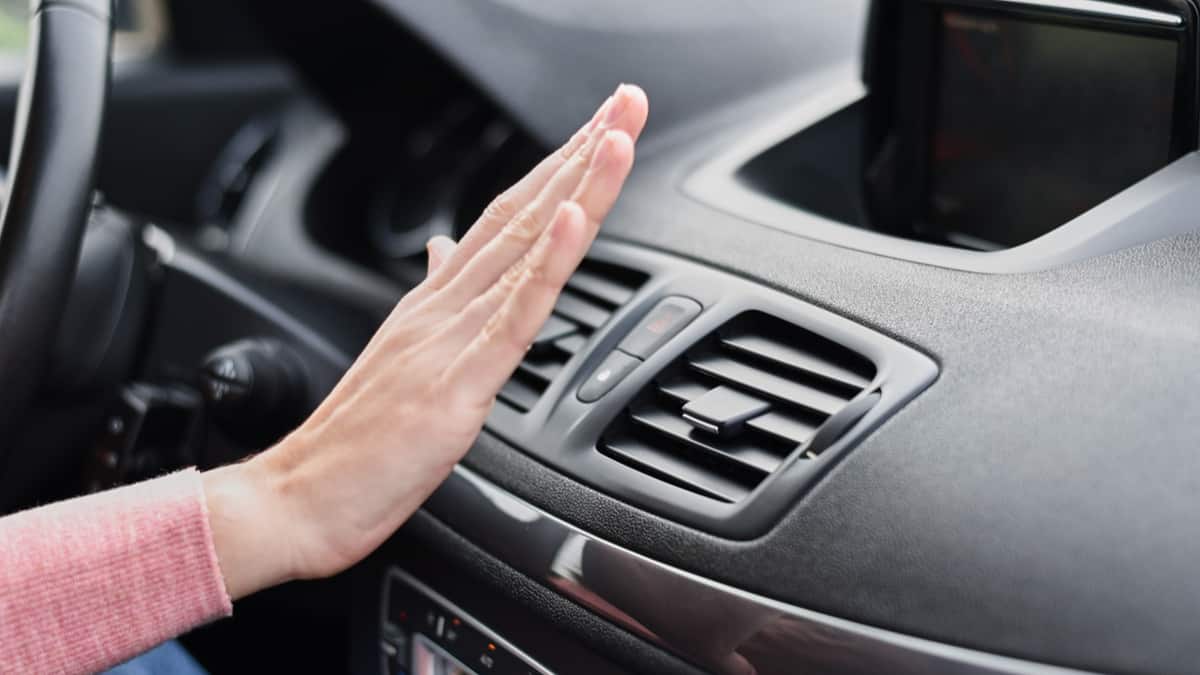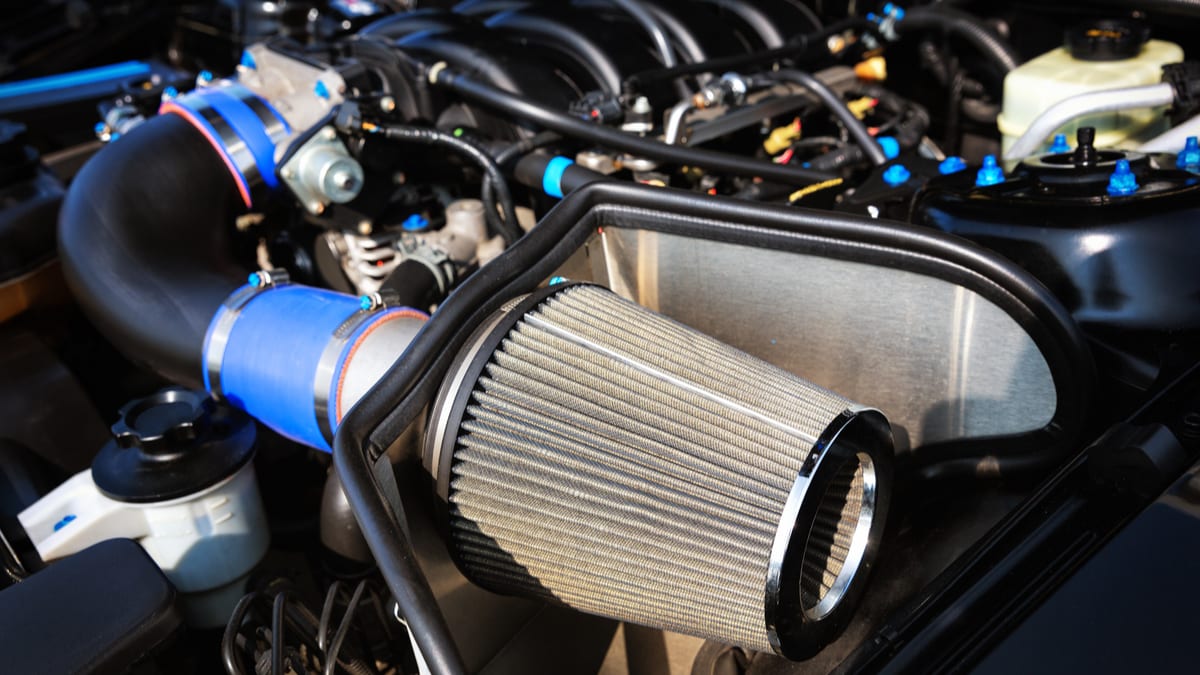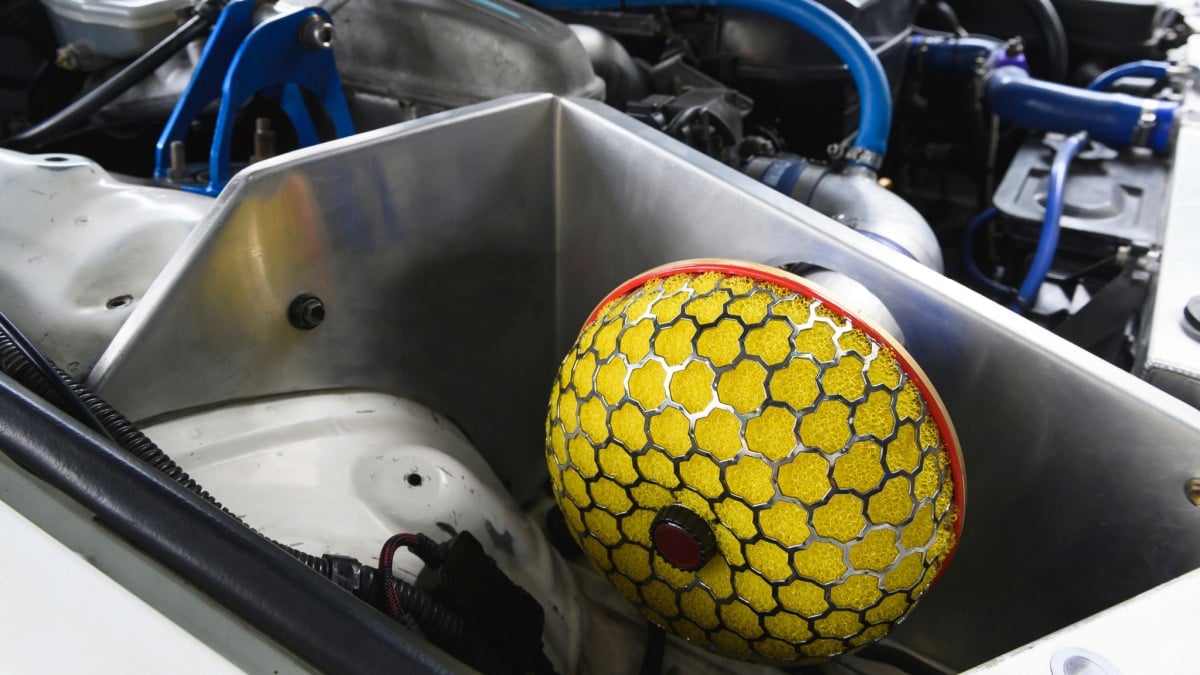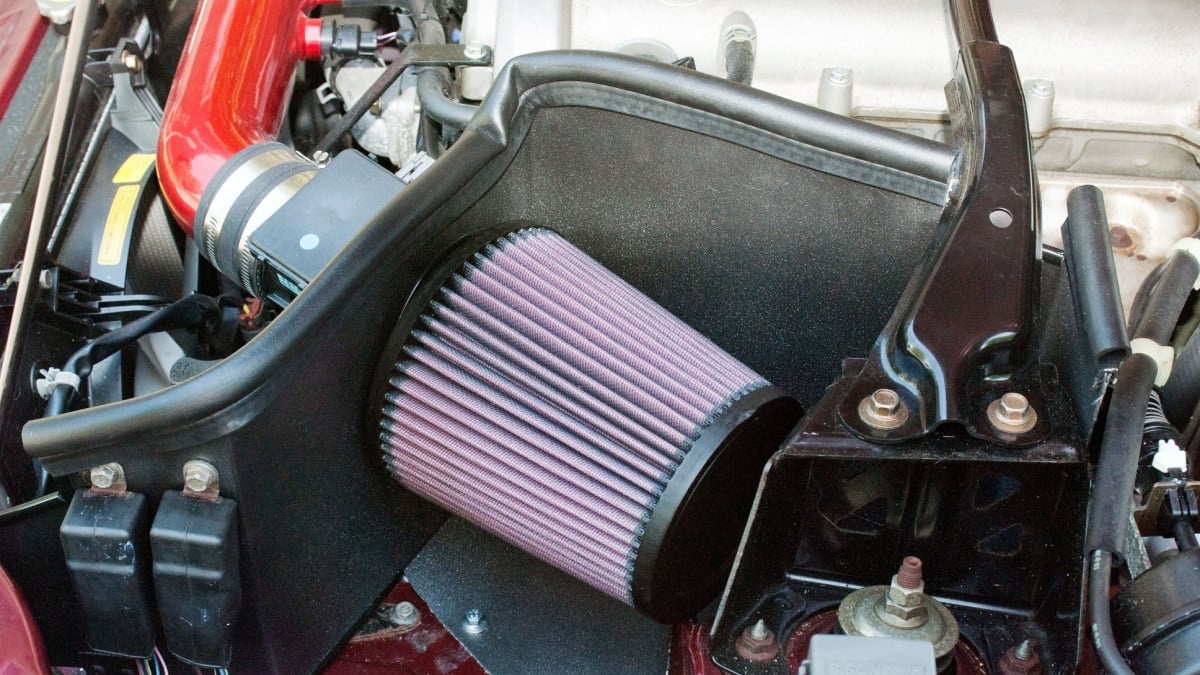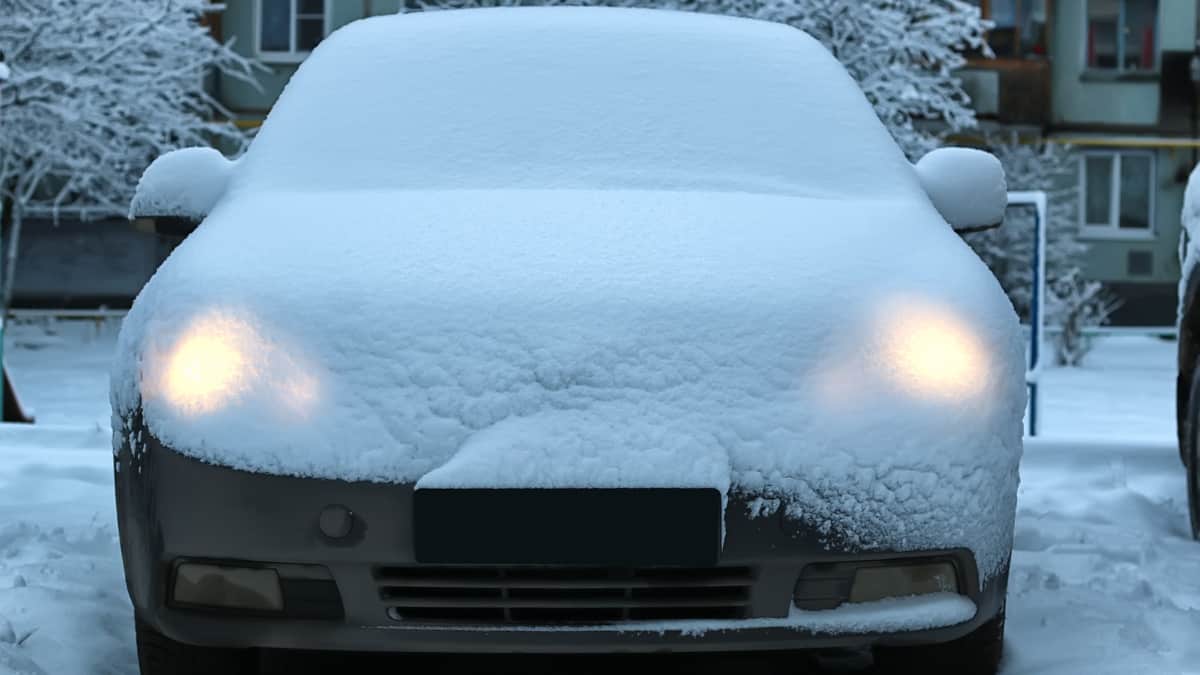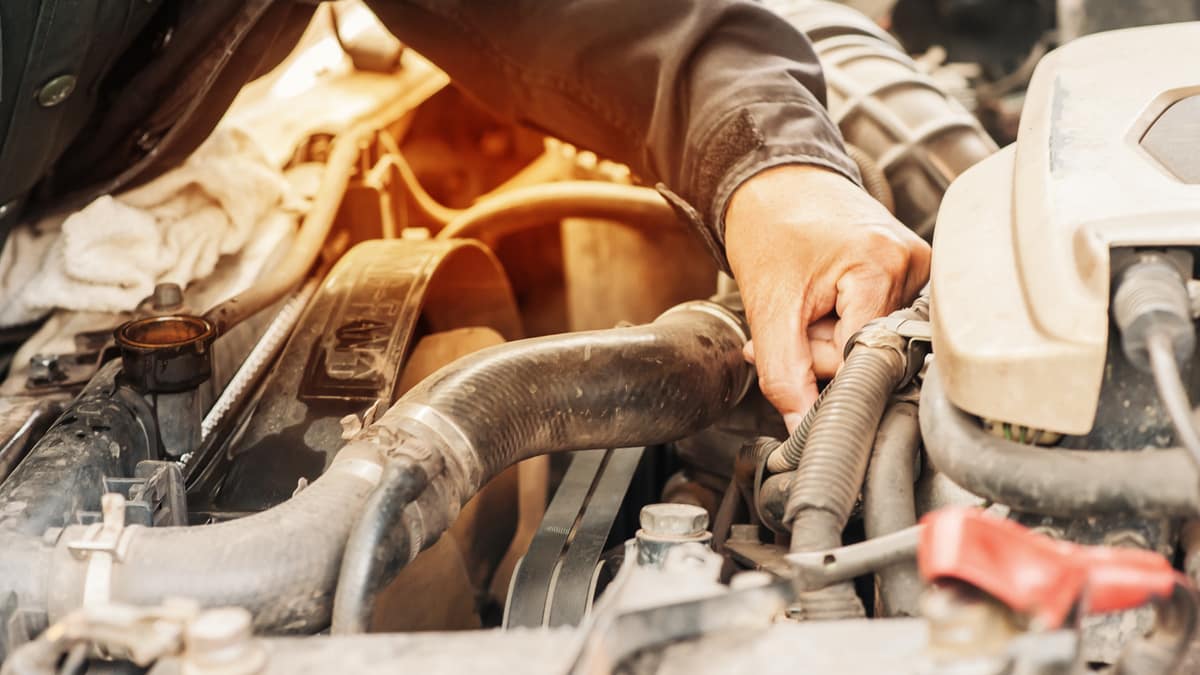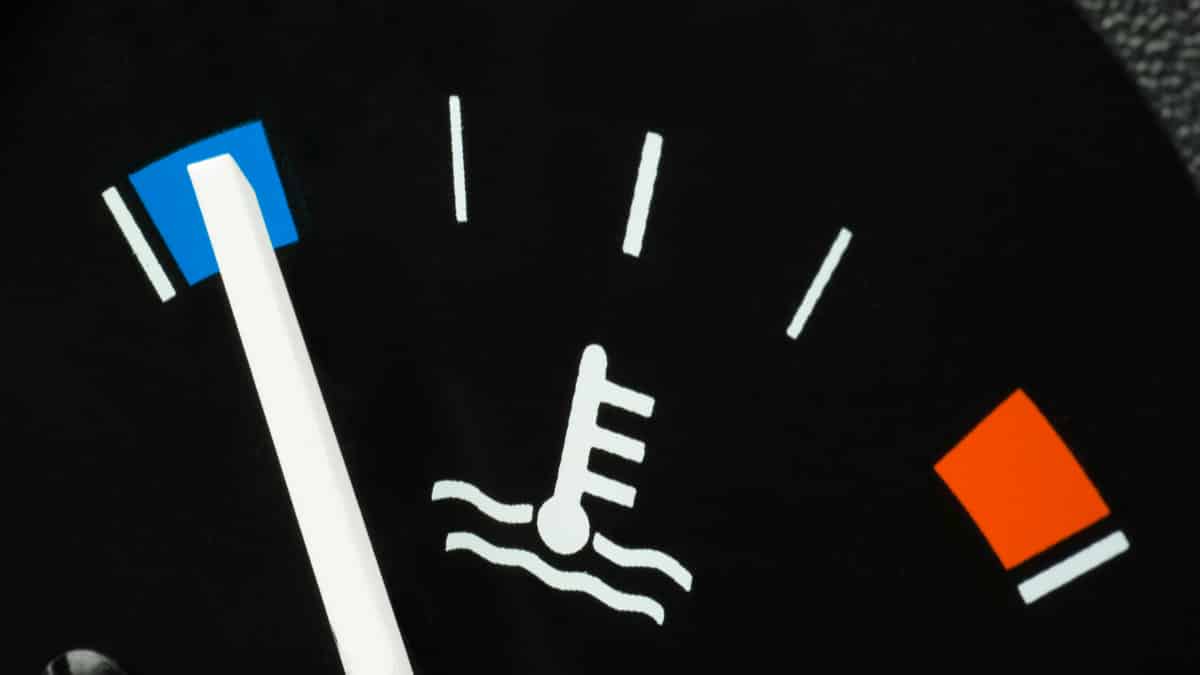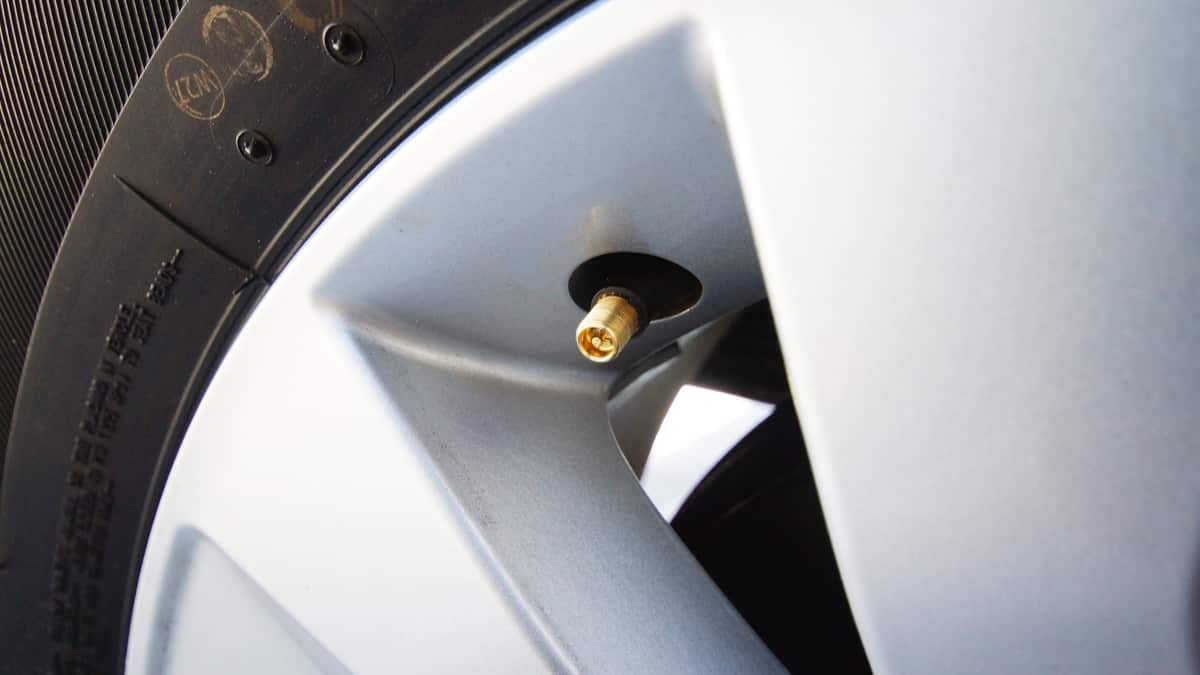Imagine driving peacefully on a bright sunny morning, listening to your favorite music, and enjoying the scenery around you.
Now, imagine that your car’s air conditioning system suddenly stops blowing cold air. How would you feel?
Absolutely desperate, of course! Any problem in your car that has to do with air conditioning can be very distressing, especially if you live in a hot country. Let’s take a quick look at the possible reasons for this malfunction.
9 Causes of Car AC Not Blowing Cold Air
The most common reason why your AC is not blowing cold air is due to an empty AC system, which is caused by a leak. It can also be caused by a faulty AC pressure switch, a bad compressor, or a damaged AC condenser. In more rare cases, it can also be an issue with your heat controller.
The main issues that occur with the car’s air conditioning system are due to poor maintenance. Here is a more detailed list of the most common causes of a car AC not blowing cold air.
1. Empty AC System
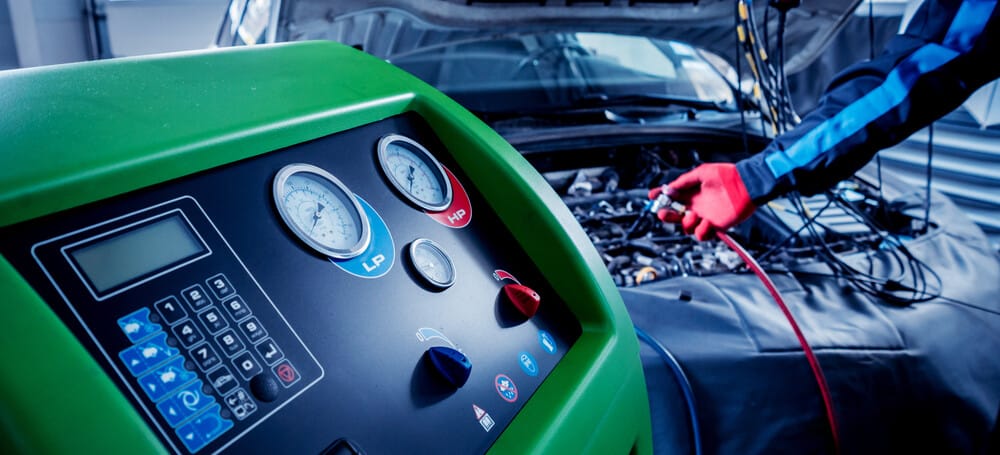
Your AC system is filled with an ac refrigerant, making sure the whole system is working correctly. This refrigerant system is under high pressure, and it can reach 15 bars when the car is running.
For the AC system to work properly, it needs this pressure and a specific amount of refrigerant.
If you leak in the AC system, the pressure will get lower and lower, until it finally stops working at all.
The AC system also leaks very slowly through hoses and other places. This is an extremely slow process, though, and you can expect to refill it every 6-7 years.
If you haven’t refilled it in 6-7 years, it is definitely time for a refill. If you filled it more recently than that, it is time to check it for leaks.
Only let a certified workshop with the proper equipment do work to your AC system. The AC system should always be checked for leaks before a refill.
RELATED: Does AC Leak Sealer Work?
2. Faulty AC Pressure Switch
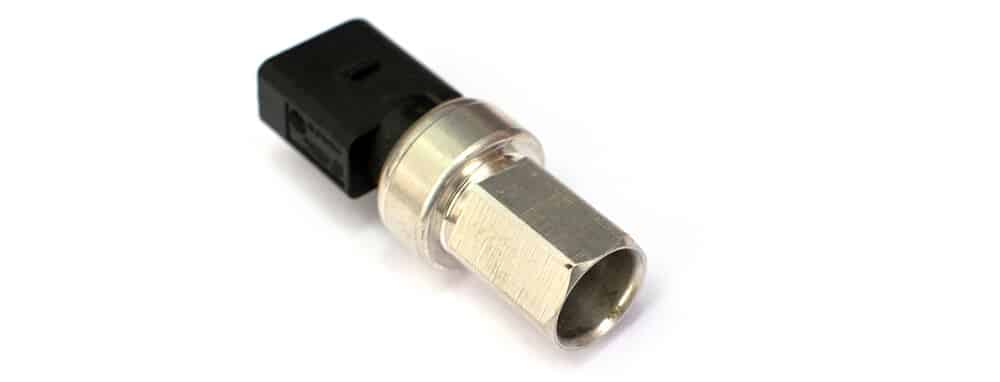
There are two AC pressure switches in your car that monitor the high-pressure side and the low-pressure side of the air condition system for safety reasons.
If the pressure gets too high, it will stop the AC compressor from cooling the system anymore. This is a safety mechanism. The same is true if the pressure gets too low.
If the AC pressure switch is faulty, it can give the AC compressor faulty signals to stop – even if it shouldn’t – and this will cause your AC system not to function at all.
3. Faulty AC Compressor Clutch
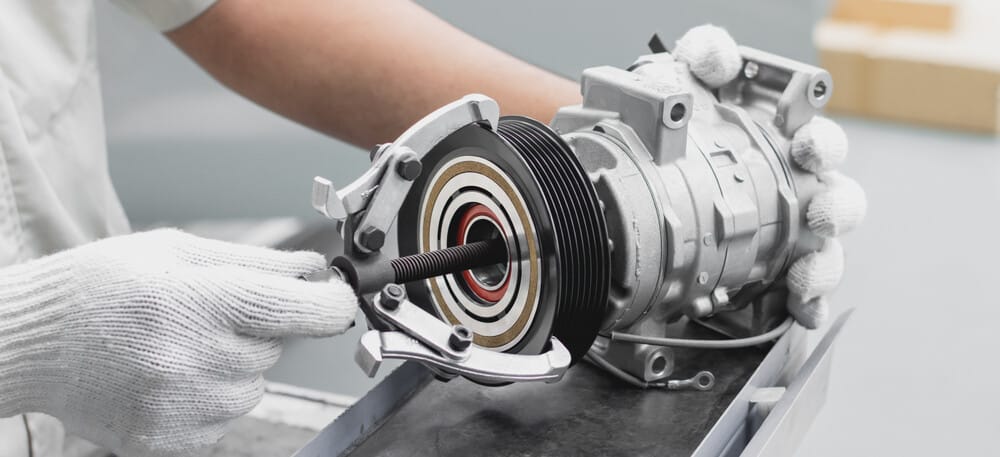
Some car compressors use a clutch inside the air compressor. The serpentine belt powers the air compressor pulley, and when you activate the AC, the clutch connects the air compressor to the pulley. This makes the AC compressor to spin and power the AC system.
If this clutch is too worn, it may cause the AC compressor not to start at all. You can replace this clutch in many AC compressors, or even remove shims for the clutch for it to work a little bit more.
Most newer cars have a variable AC compressor, though, and in this case, no AC compressor clutch can fail.
RELATED: How Much Does an AC Recharge Cost?
4. Faulty AC Compressor
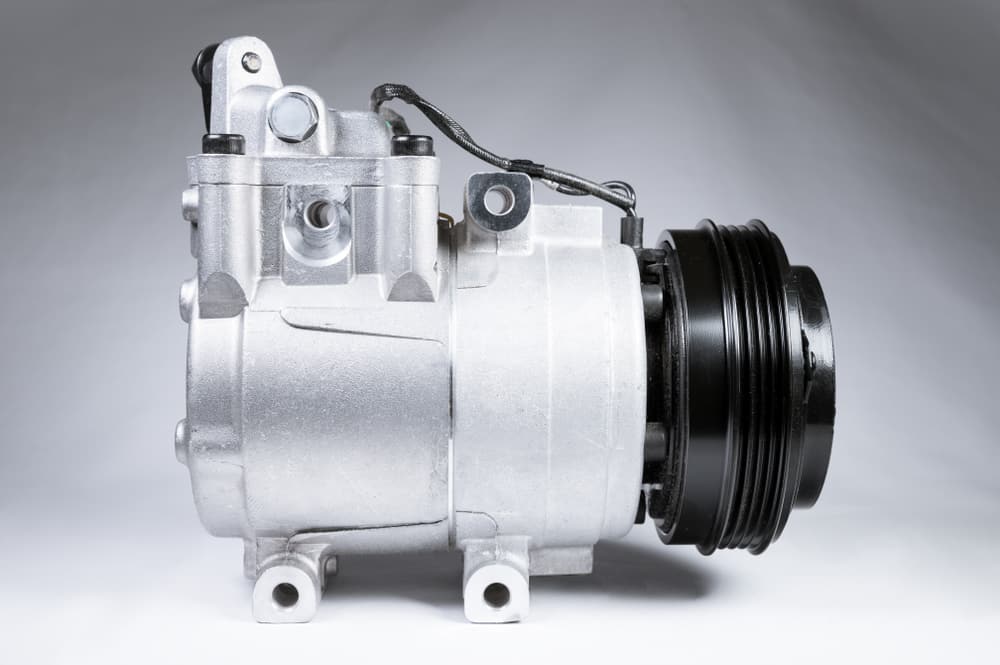
The AC compressor clutch isn’t the only thing that can be damaged. The compressor itself can also fail if you are unlucky. The AC compressor pumps refrigerant around in the AC system for it to cool properly. Occasionally, the pump fails and stops pumping at all, and this will cause your AC system to blow hot air.
If the AC compressor fails, you often have to flush the whole AC system afterward, because there might be metal pieces everywhere.
5. Damaged AC Condenser
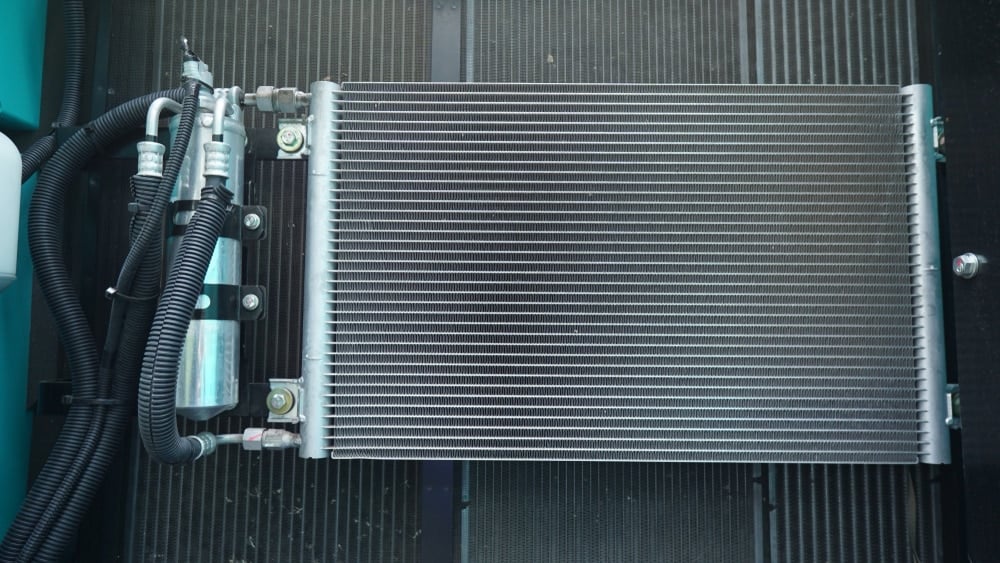
The condenser is installed in the front of the car, and it transfers heat away from the evaporator inside the car. The AC condenser is often installed in front of the radiator, and this means it sits in a very exposed position. Stones and other pieces of detritus can damage it when your car is traveling at high speeds.
This often causes the AC condenser to start leaking refrigerant. You will usually need to replace the AC condenser at least once every 10 years.
6. Damaged Condenser Fan
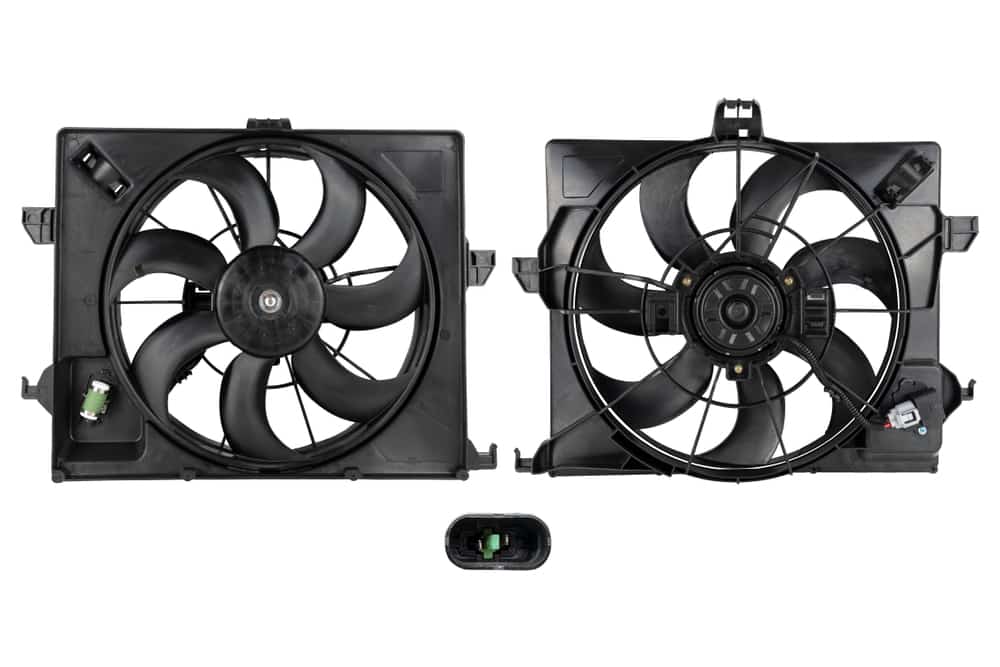
The condenser needs wind passing through it to remove the heat properly. As you might imagine, wind won’t pass through naturally if your car is moving at a low speed. For this, your car needs a fan so that air is pushed through even when your car is moving slowly.
If this fan fails, there might be a problem with the AC system at lower speeds. If you notice that your AC is working at higher speeds, but not at lower ones, there could definitely be a problem with the condenser fan.
7. Clogged Cabin Filter
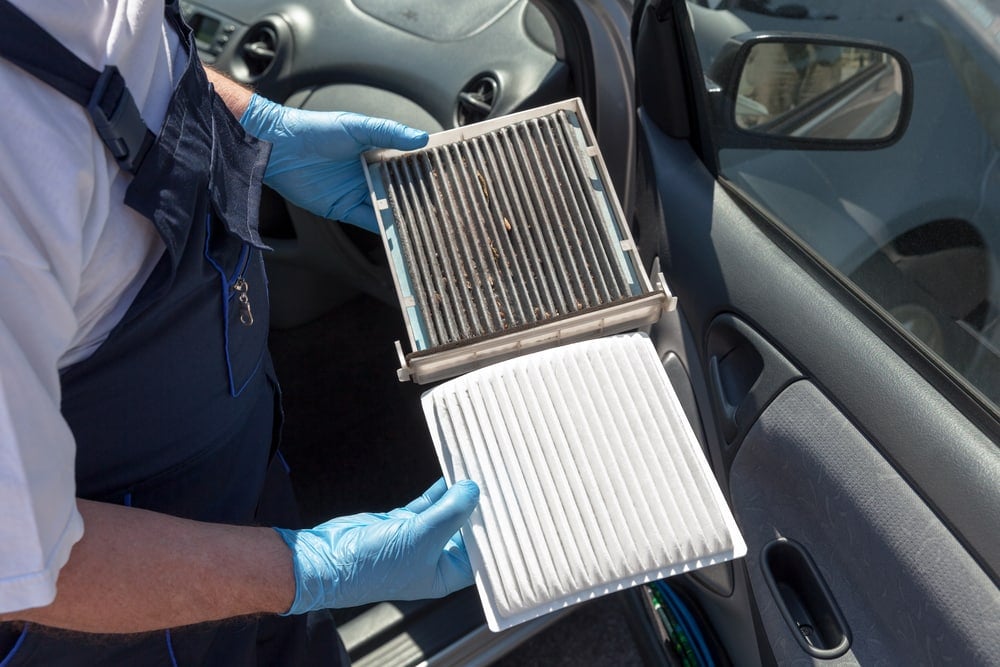
The cabin air filter is responsible for filtering the air that enters the vehicle’s air conditioning system. The filter catches all the dust and impurities that enter the passenger compartment and can, therefore, become clogged over time.
Also, a clogged cabin air filter leads to a deterioration in the air conditioning system’s cooling. It is recommended to check and clean the cabin air filter frequently. If you want to know more, you can read my article Why should I replace my Cabin Air filter.
If you feel that there is a meager amount of air blowing through the vents, it could absolutely be a clogged air filter.
RELATED: Symptoms of a Bad Heater Blower Motor Resistor
8. Faulty Blend Door Actuator
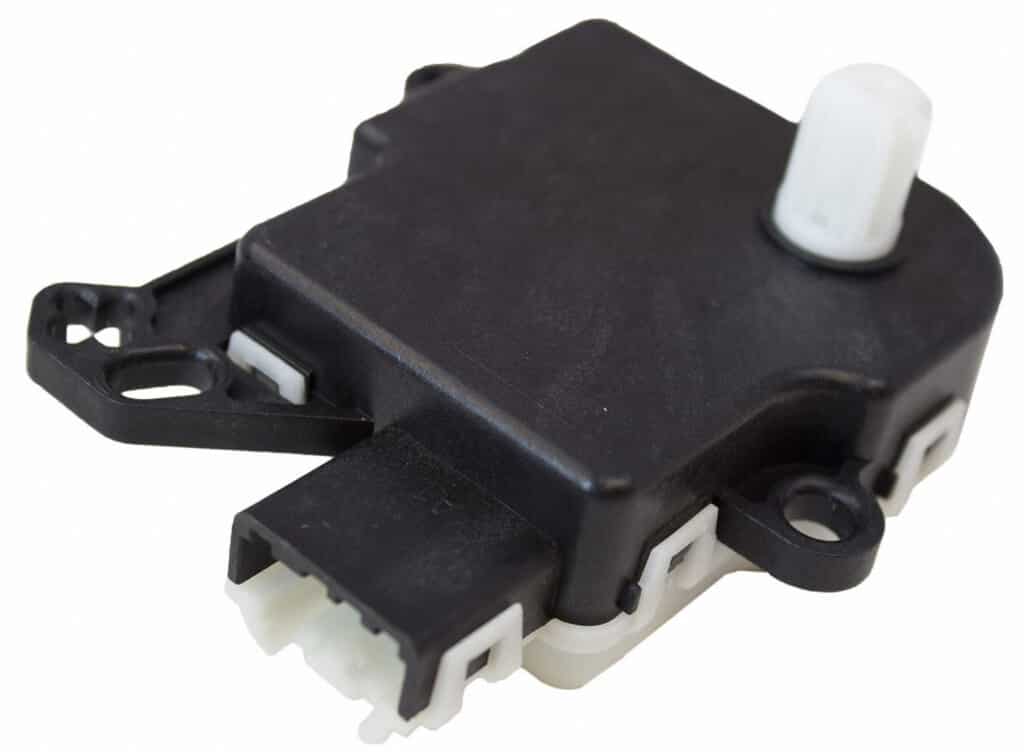
When you turn the heat controller on the AC control unit, there needs to be something that controls the heat inside the car. This part is called the blend door actuator, and it controls a flap that redirects hot or cold air inside of your car.
The setup can look a little bit different from car to car, but the main function is the same. If this actuator is faulty, your car might blow hot air out from the vents even if you need cold air.
9. Faulty Heat Controller / Air Condition Control Unit
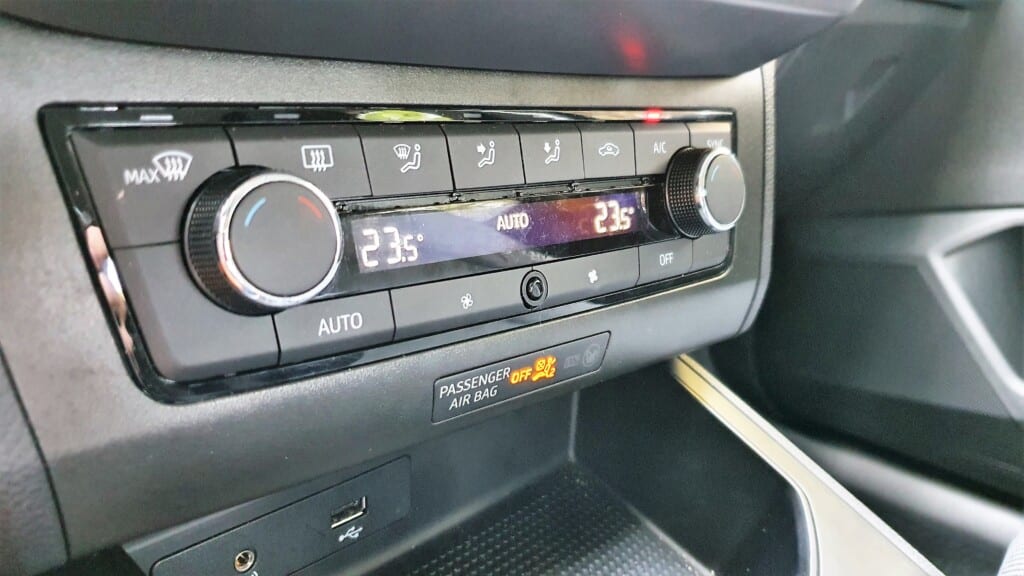
The last cause on this list is a faulty heat controller. If this fails, it may send the wrong signal to the blend door actuator, and this may cause it to blow hot air instead of cold.
Most older cars have wires for this, but newer cars have an electronic signal between these, which can fail. The air conditioning control unit is often quite expensive. You should check the other possible causes on this list before deciding to replace it.
Categories: Air condition, Troubleshooting

